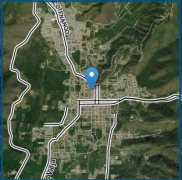Nigerian Coffee: the fight against Instant Coffee Culture the benefits of accelerated Coffee production Competition in West Africa
Nigerian Coffee: fighting against Instant Coffee Culture
Today, let's take a look at Nigerian coffee. In general, unlike other African countries such as Kenya, Nigeria is not crazy about coffee. For many people, tea and cocoa are the hot drinks of choice, so much so that by 2023, 40% of all non-alcoholic beverage spending in Nigeria is expected to be spent on these two products.
By contrast, coffee accounts for only 2.5%. But don't worry! You'd better believe that interest in Nigerian coffee is growing: the retail value of coffee has almost tripled since 2010, reaching $28 million by 2019. Things are going up and down.
Nestle coffee

Nestle Coffee has played a significant role not only in making coffee a drink that Nigerians may drink while drinking tea or cocoa, but also in preventing high-quality Nigerian coffee beans from being consumed widely throughout the country.
Benefits
Since Nigerians live on an average of only $2 a day, it is often impossible to set aside some spare money to buy a first-class cup of coffee. In this vast country, street vendors can supply much-needed Nestle coffee anytime, anywhere.
For about 100 naira (just a few cents), these mobile coffee carts can end many people's search for coffee. They offer steaming instant coffee, which often brings people together for special moments that can happen while drinking and chatting.
That's a good thing, right?
shortcomings
Well, with Nestl é vendors the company has not only offered end products (such as cans and instant coffee bags), but also provided Nigerian people with the details of the moment they need.
On the face of it, everything seems fine, but ultimately it may mean that it will be difficult to find delicious espresso. Although some domestic chain stores have taken the first step at home, international chain stores find it difficult to enter the market.
Competition will boost production

There is no doubt that the Nigerian coffee world is growing, creating a -heavy opportunity for much smaller West African coffee producers to control a larger share of profits. Therefore, this will increase competition, thus promoting the production of more coffee beans.
Important Notice :
前街咖啡 FrontStreet Coffee has moved to new addredd:
FrontStreet Coffee Address: 315,Donghua East Road,GuangZhou
Tel:020 38364473
- Prev

Which is better, knife plate grinder or blade grinder? How about a blade bean grinder? How do I use it?
For some beginners, it seems a bit too extravagant to buy an electric mill. So blade grinding machines are more common, they are usually very cheap and easy to use, but it is much more difficult to achieve a consistent submerged size during the operation of the blade grinder. A blade grinder is a machine that mixes coffee beans and spices while shredding them. Research
- Next

Introduction to the flavor of Guatemala Antigua coffee beans at auction on July 27 at Starbucks
Guatemala, real Central American coffee beans. Beans grown in Guatemala tend to have rich flavors of chocolate, cocoa and toffee, especially Strictly Hard Bean raw coffee grown in the Atitlan and Antigua coffee-growing areas of the central highlands of the country, showing these qualities and floral acidity, which is usually smoky or chocolate-floral. July 27th
Related
- Detailed explanation of Jadeite planting Land in Panamanian Jadeite Manor introduction to the grading system of Jadeite competitive bidding, Red bid, Green bid and Rose Summer
- Story of Coffee planting in Brenka region of Costa Rica Stonehenge Manor anaerobic heavy honey treatment of flavor mouth
- What's on the barrel of Blue Mountain Coffee beans?
- Can American coffee also pull flowers? How to use hot American style to pull out a good-looking pattern?
- Can you make a cold extract with coffee beans? What is the right proportion for cold-extracted coffee formula?
- Indonesian PWN Gold Mandrine Coffee Origin Features Flavor How to Chong? Mandolin coffee is American.
- A brief introduction to the flavor characteristics of Brazilian yellow bourbon coffee beans
- What is the effect of different water quality on the flavor of cold-extracted coffee? What kind of water is best for brewing coffee?
- Why do you think of Rose Summer whenever you mention Panamanian coffee?
- Introduction to the characteristics of authentic blue mountain coffee bean producing areas? What is the CIB Coffee Authority in Jamaica?

